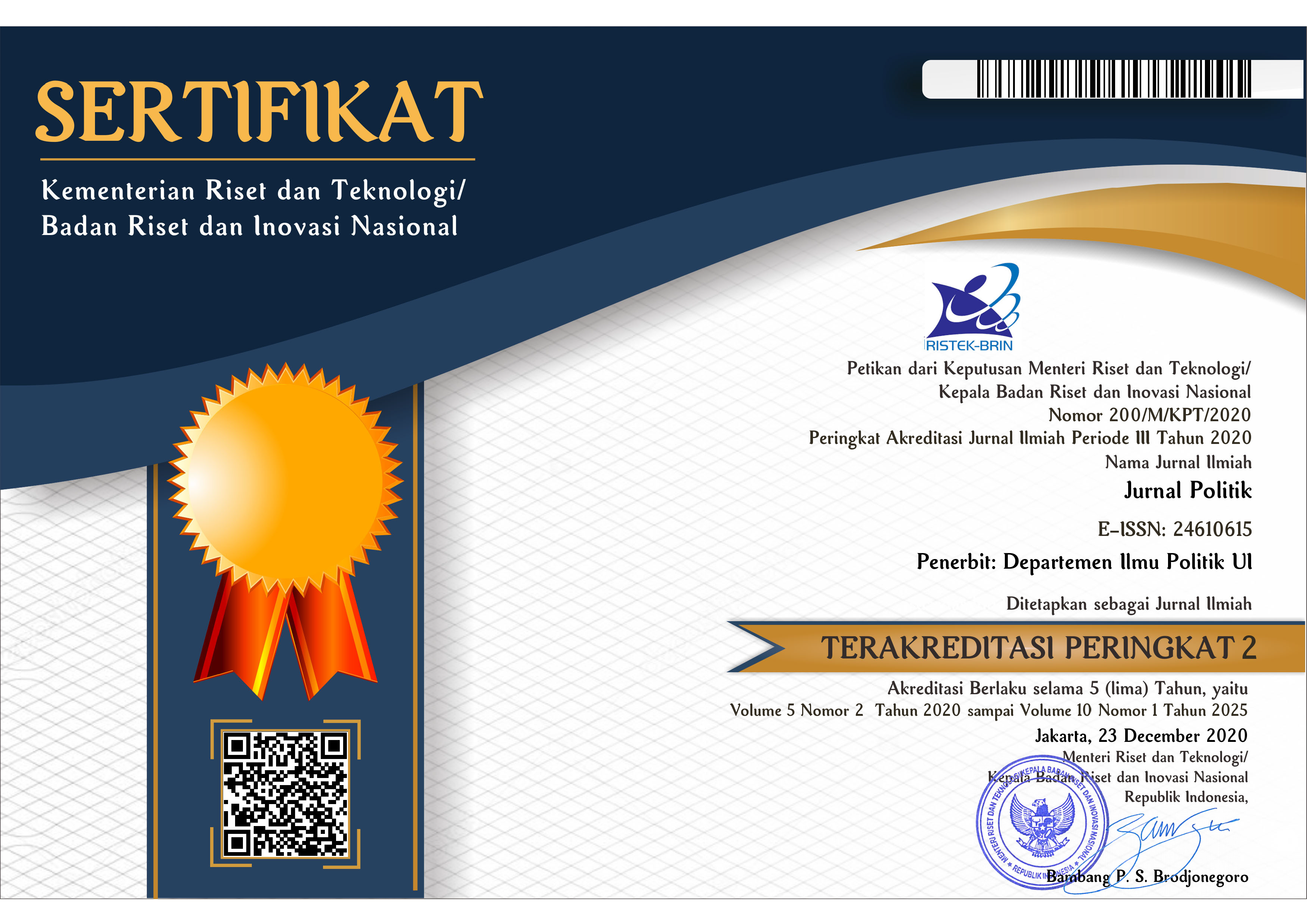Article Title
Educational Intervention Program for Young Voters: Improving Political Knowledge and Voting Behavior in the 2020 Simultaneous Local Elections
Abstract
Studies on party survival strongly emphasize the internal dynamics of political parties and their ability to adapt to retain voter support. This article contends that changes in electoral systems and laws, classified as an external factors, also have a significant impact. As a result of these changes, new political parties cannot register to run for office. These changes have also made small political parties with little support unable to survive in parliament. Two significant findings emerge from this case study of Indonesia’s five election cycles. First, changes in Indonesia’s electoral systems and laws have been heavily influenced by the desire of major political parties to strengthen their positions in the political arena. They raised the parliamentary threshold using their legislative authority to make it more difficult for minor political parties to send representatives to parliament. Second, critical variables in electoral systems and laws such as district magnitude, seat conversion formula, and parliamentary threshold do not independently impact party survival. As a result, at least two variables must be combined, namely district magnitude and parliamentary threshold.


